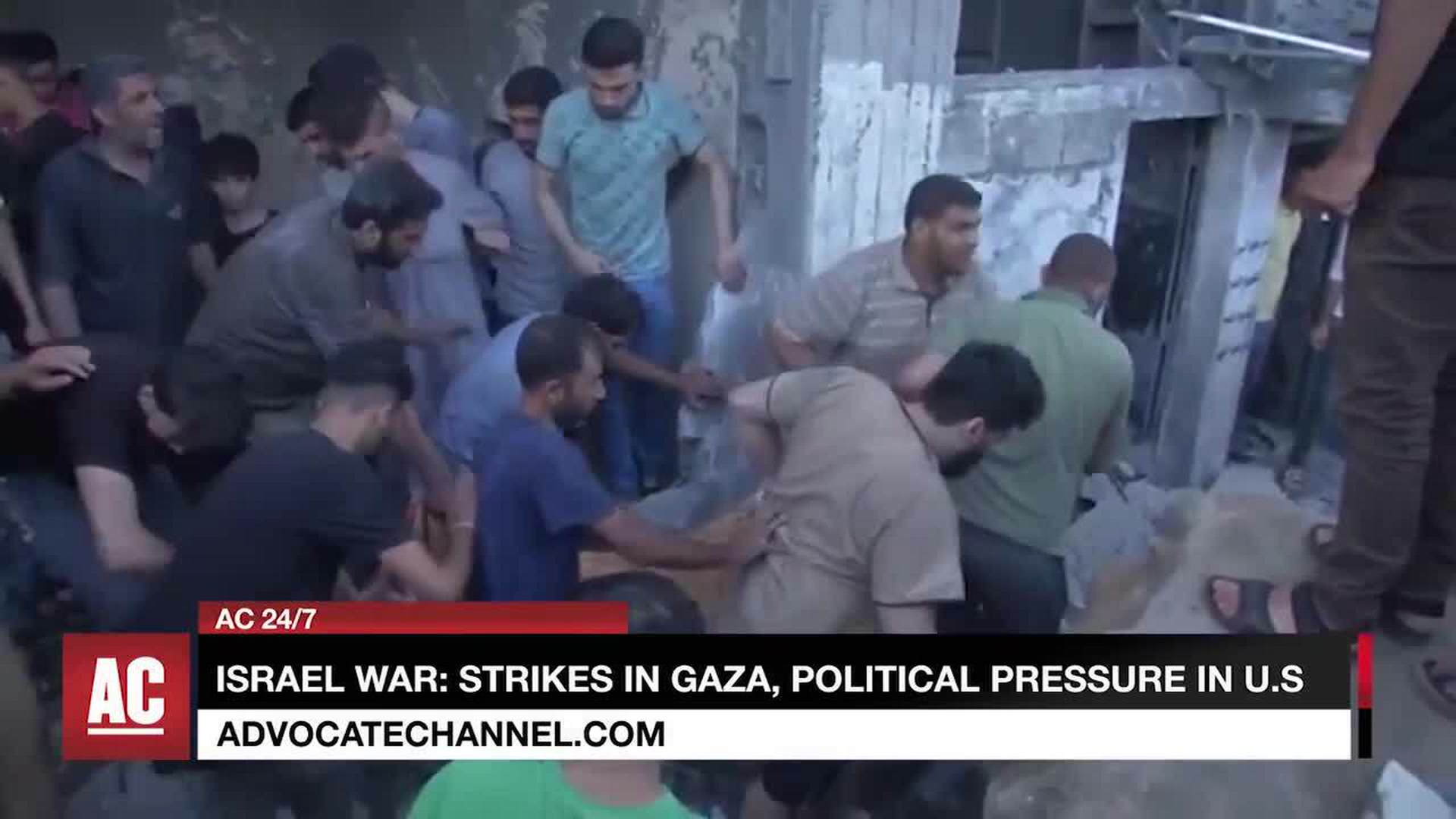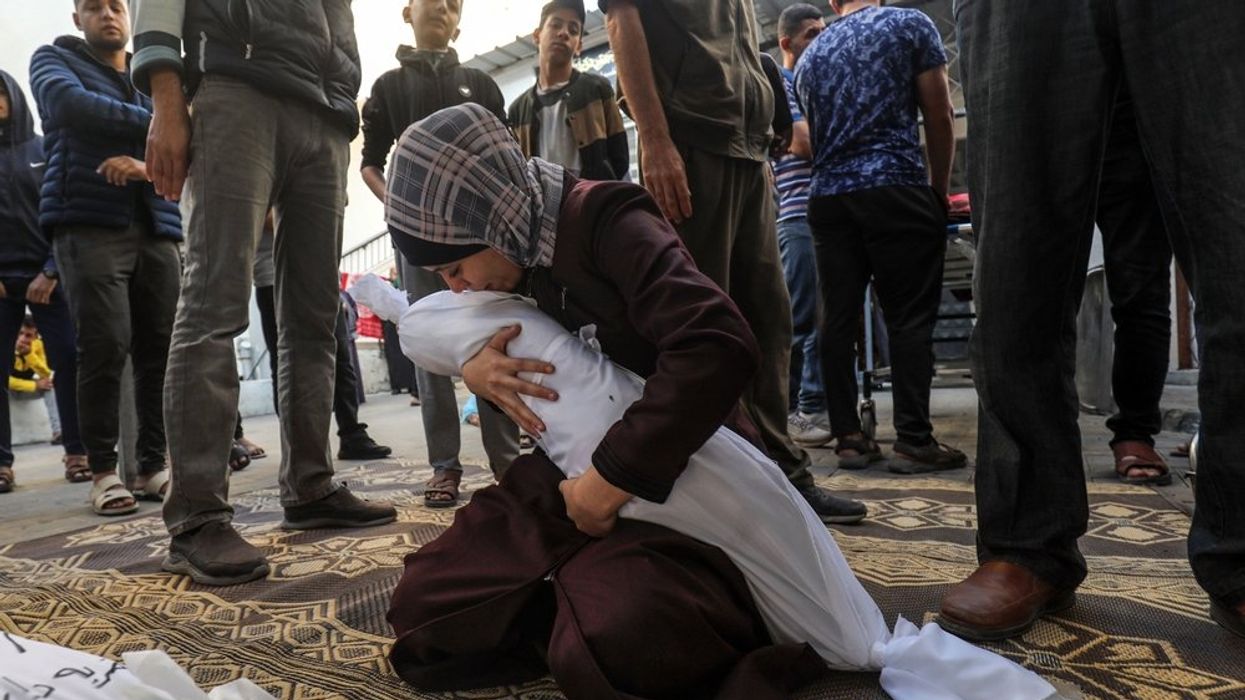Editor's note: Hani Almadhoun is director of Philanthropy at the United Nations Relief and Works Agency USA. He grew up in Gaza, where his family still lives. The views expressed in this commentary are his own. Read more CNN Opinion.
(CNN) — I keep waiting for someone to wake me up.
As I witness the surreal and staggering devastation on the streets of Gaza, where my parents live, and the tragic loss of more than 10,000 Palestinian lives unfolding in real time, my heart keeps sinking.
I hold on to the hope that something, or someone, can end this nightmare. But that never happens.
Instead, I find myself mourning every day for the families affected and grieving for the profound injustices that permit such a horrifying loss of life to persist.
My wife and I wake up each morning in Virginia knowing we won’t find any good news some 6,000 miles away in Gaza. The updates deepen our despair, leaving Palestinians to bear the weight of these atrocities, while the world watches.
We find ourselves in an unsettling state, like waking up from surgery, still sedated. We know our surroundings, but meaningful action feels elusive.
Ahmad, my maternal cousin, lost his parents, and all his siblings in a single bomb blast on Monday. To think that a mere four minutes of him being outside of the house made the difference between life and death is something that chills me to my core.
My colleagues at the United Nations Relief and Works Agency for Palestine Refugees (UNRWA) in the field provide daily reports of staff casualties, facilities hit or damaged by Israeli airstrikes and shortages of food, water, medicine and fuel in Gaza.
The crippling 16-year blockade imposed by Israel already meant an unbelievable 75 percent of Gaza’s population needed UNRWA food assistance to eat before the latest hostilities.
Our year-end plans at UNRWA USA to secure sponsors for university scholarships for academically gifted refugee students in Gaza have been upended because of recent events. Institutions of higher learning, including Al-Azhar University, where I spent a semester, now lie in ruins.
Gaza’s academics and students have dramatically shifted their focus from contemplating their future careers to basic survival.
The unfolding catastrophe in Gaza raises critical questions about the relevance of international humanitarian laws. Do they still matter? Do Palestinian lives matter to the world?
The words of my mother in Gaza capture the impact of events since October 7th. After days of intense worry and a total communication blackout, she confided: “We spend our days and nights staring at the ceiling, imagining a bomb to fall any minute that will transition us to the next chapter.”
It’s a testament to the persistent fear and uncertainty that hangs over my family. Mom’s decision to sleep in the living room with all her grandkids to keep them close, whether in this life or the one beyond, is a poignant expression of her love and the lengths she’s willing to go to protect them.
My eight-year-old nephew, Yazan, finding solace in his belief that his grandma’s blanket serves as a shield, is both heart-wrenching and heartwarming.
In such challenging times, it’s these small acts of love and care that provide a glimmer of hope and a sense of security, even in a deeply perilous world.
The burden placed on young shoulders like those of Yazan is a painful testament to the extraordinary challenges faced in today’s Gaza. Standing in line for hours just to obtain bread, now a prized commodity in a warzone grappling with food shortages and water scarcity, is a reflection of the daily hardships.
My nephew Omar told me, “Every time I leave the house, I ask myself if I will return home to find my family unharmed or if would I be the unlucky one and be in the wrong place at the wrong time.”
In these moments of deep anguish and reflection, it is imperative that the international community, including leaders like President Joe Biden, come together and urgently call for a ceasefire.
We must ensure that human rights and international laws are upheld, fostering a world where no life is considered disposable, regardless of one’s nationality or background. We must strive for a future where the value of every individual, including Palestinians, is respected and protected.
If we fail to step up for the civilians living in the Gaza Strip, we are pushing them deeper into the abyss of despair and hopelessness.
Palestinians, tired of living for decades under a violent military occupation, have never given up. International law requires that even an occupying power ensure the health and safety of the occupied population and explicitly prohibits collective punishment and/or forcible transfer.
Yet, when I see the current situation in Gaza and the relentless assault on the entire population, I can’t help but wonder whether the Israeli military aims for an ultimate surrender to teach us and our children, like they taught our grandparents before us, that we are a defeated people.
I left Gaza in mid-August and as I exited the Rafah Crossing, I told my friends, “Take care of the homeland.” That sentence has never felt more relevant.
The-CNN-Wire
™ & © 2023 Cable News Network, Inc., a Warner Bros. Discovery Company. All rights reserved.
Calls for ceasefire

Video Source: Advocate Channel
- Queering the Map in Gaza: LGBTQ+ Palestinians Pay Tribute to Deceased Loved Ones ›
- Gaza Has Become a 'Graveyard' For Children, 'Living Hell For Everyone Else:' UN ›
- Rashida Tlaib Holds Strong After Censure From House: 'No Government Is Beyond Criticism' ›
- UN Sounds Alarm on 'Risk of Genocide' Against Palestinians ›


















































